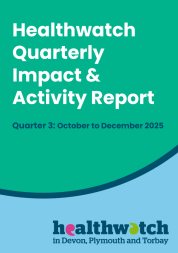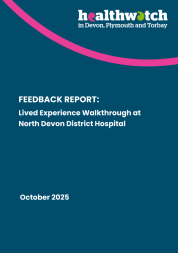One year on: How is Pharmacy First working for patients?

Background
Launched in January 2024, Pharmacy First allows community pharmacists to diagnose and supply prescription-only medicines for seven common conditions, such as sinusitis, sore throat, and earache, without visiting a GP.
Since then, 98% of pharmacies have signed up, and millions of consultations have been delivered. But what do patients think?
Our new report revisits research we carried out before the launch of Pharmacy First in 2023. Our previous investigation found that most people value pharmacy services and liked the idea of getting help from a pharmacist for common conditions.
However, people did face challenges. These included supply shortages in some medicines, pharmacies closing, and issues with people being able to afford medication.
A year later, we found that public satisfaction with pharmacy services remained high, and most people trust pharmacists to treat more conditions. However, issues with medicine supply persist, and the use of Pharmacy First varies across England. There also needs to be greater awareness that pharmacists can treat specific conditions.
Who did we speak to?
We commissioned a representative poll of 7,029 adults in England, of which 3,104 (44%) people had visited their pharmacy for help with one of the conditions covered by Pharmacy First over the previous 12 months. We also analysed NHS data on Pharmacy First, stories shared by patients, and research by local Healthwatch services.
What were our key findings?
- There are high levels of satisfaction with Pharmacy First services. Almost nine in ten (86%) reported a positive experience of visiting their pharmacy for support with one of the seven common conditions covered by the scheme.
- Awareness has improved, but there is more to do. Nearly three in ten people (29%) who said they were unlikely to use a pharmacy for the seven conditions were unaware pharmacies could provide treatment and advice. Almost one in three (32%) of this group would still prefer to see their GP.
- Regional differences exist in awareness, usage, and appetite for expanding Pharmacy First. The analysis of NHS data on Pharmacy First consultations found striking variations in uptake across the nation. This pattern was also reflected in the polling, with people in London more likely to visit their pharmacy for help with one of the common conditions (56%) than those in the East of England (35%). Local Healthwatch teams also reported varying public awareness of Pharmacy First, ranging from 39% in Halton to 72% in Stockton-on-Tees.
- Pharmacy First has led to changes in why people visit their pharmacies. Compared with our November 2023 results, our research and other studies indicate a possible shift in attitudes towards using pharmacies for symptom management and health advice. More research is needed to see if this growing openness to using the pharmacy for a wider range of conditions will lead to lasting change.
- Problems accessing medications persist. One in four respondents (23%) said they had been unable to get the medication they needed in the past 12 months because their pharmacy had run out—virtually unchanged from our research in 2023 (24%). Issues such as prescription delays, pharmacy closures, and affordability have increased.
- Privacy concerns are a key driver of poor experiences. Just under one in ten (8%) people felt uncomfortable discussing their health concerns in the pharmacy, citing issues including having to talk in front of other customers and lack of space for private conversations.
- The public supports pharmacists doing more. Over six in ten people said they would use a pharmacy for conditions not covered by Pharmacy First including eye infections (67%), skin problems (66%) or management of high blood pressure or asthma (65%).
What steps would help improve the experience of patients?
The research finds that Pharmacy First works well for many patients, and there is strong public support for expanding the initiative to cover more conditions.
However, the Government and the NHS must tackle medicine supply problems, low awareness of how pharmacists can help, and privacy concerns to ensure the scheme realises its potential.
- Take action to mitigate the impact of medication shortages. Steps include clear public guidance on what to do if medication is unavailable and greater flexibility for pharmacists to safely substitute medicines with patient consent.
- Continue raising awareness of the Pharmacy First Scheme. To ensure more people can benefit from the scheme, continue national campaign work, with updated campaign materials and proactive outreach to targeted groups.
- Give pharmacy teams the support they need to provide more consultations. To continue delivering services, funding provision must increase, while pharmacy premises should be reviewed for appropriateness, accessibility and comfort.
- Expand the Pharmacy First scheme to provide consultations for more conditions. In consultation with key stakeholders and the public, more conditions should be considered for delivery through the scheme.
- Collect, publish, and measure patient experience of community pharmacy services, including the Pharmacy First scheme. Introduce transparent data and targets to understand access and satisfaction to pharmacy services and improve service quality.
Download the report
If you require this report in a different format, please contact us by emailing enquires@healthwatch.co.uk or calling us on 03000 683 000


